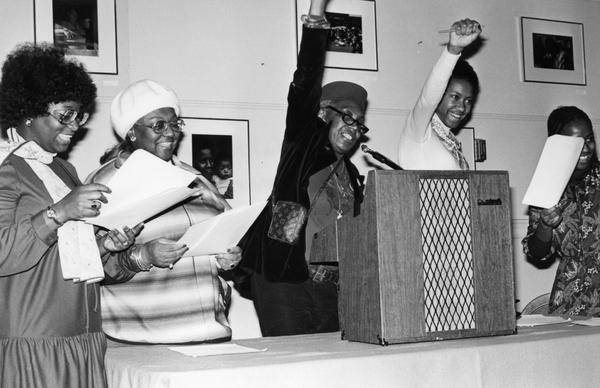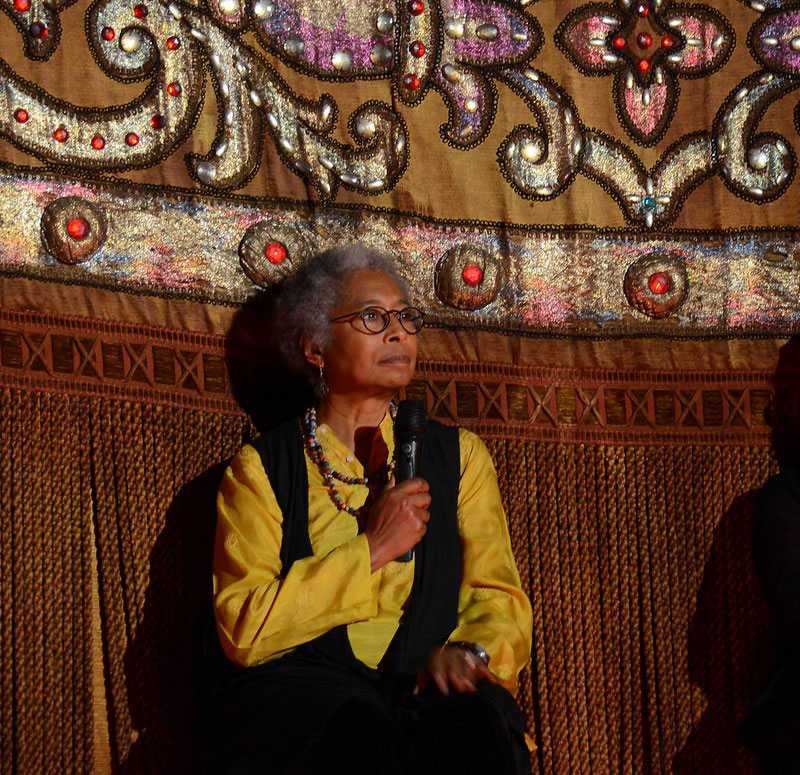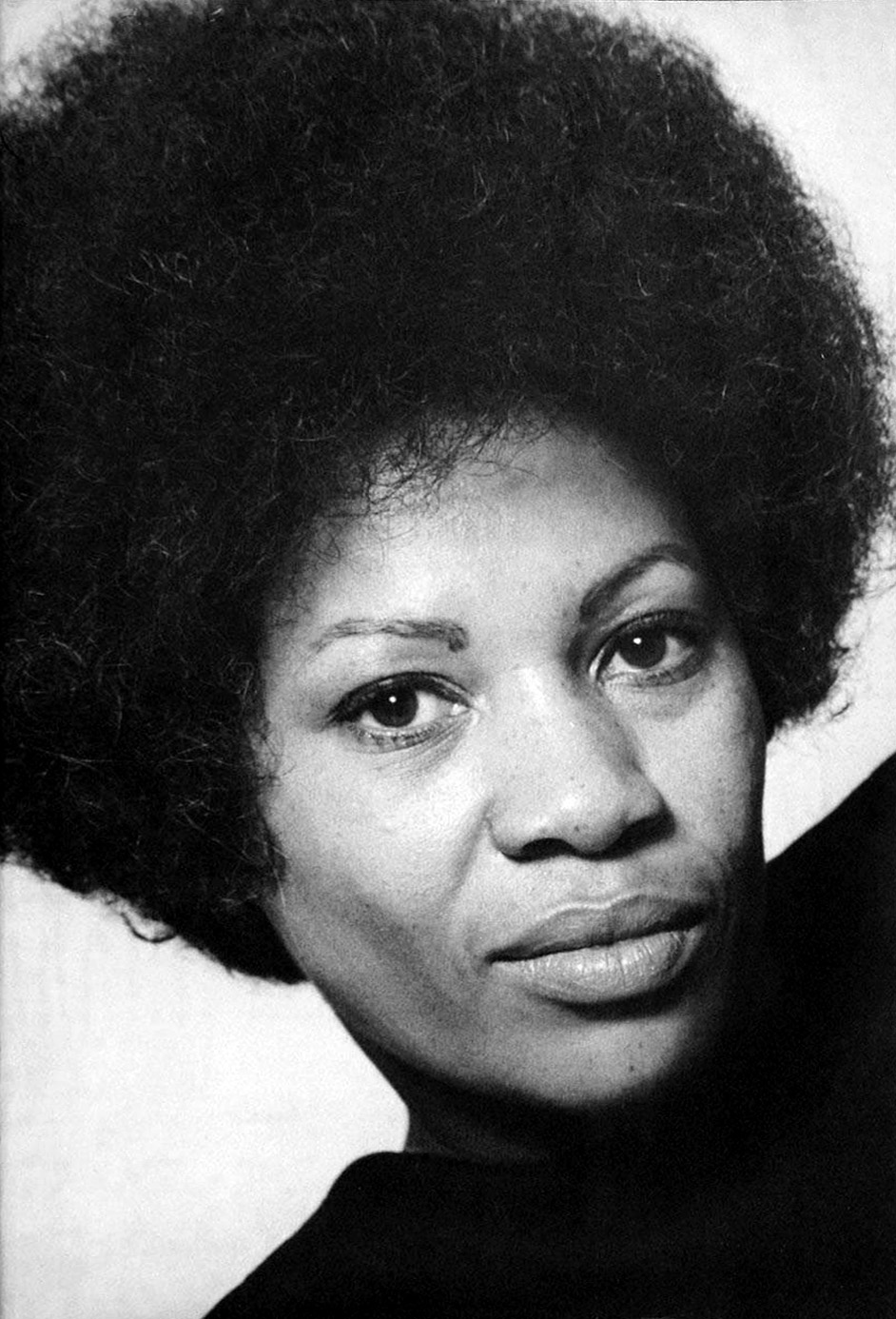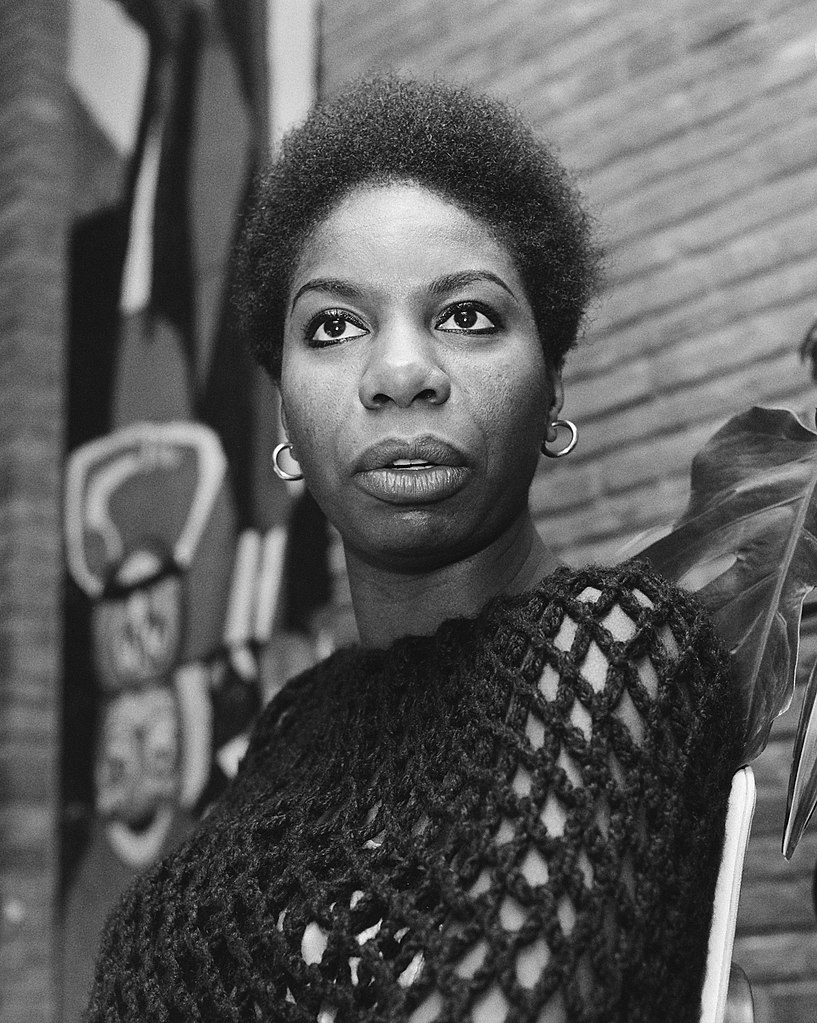Cultural Icons Celebrated at Barnard
In February 1926, African American historian Carter G. Woodson first celebrated “Negro History Week” to highlight the contributions of African Americans. It took place between the birthdays of Abraham Lincoln and Frederick Douglass. This month, 91 years later, Barnard honors Black History Month by celebrating these dynamic women who also happen to be born in the month of February.
Alice Walker (February 9)
When author and activist Alice Walker published her breakout novel, The Color Purple, she won both The Pulitzer Prize and the National Book Award in 1983, becoming the first African American woman to win the former for literature. Years before creating her own legacy, Walker reclaimed another one when she reintroduced one of Barnard’s most beloved alumna, Zora Neale Hurston ‘28. In her 1975 Ms. magazine essay “Looking for Zora,” Walker wrote, “Because of Zora’s books, I feel I know something about her.” So much that she introduced herself to locals as a niece, writing, "By this time I am, of course, completely into being Zora's niece, and the lie comes with perfect naturalness to my lips. Besides, as far as I'm concerned, she is my aunt – and that of all black people as well.” That same year, the author visited the College to share her research.
Decades later, when Walker returned to Barnard to deliver the 2003 Virginia C. Gildersleeve Professorship Lecture, English Prof. Monica Miller said, "Every conference, panel, or paper on Zora Neale Hurston owes a debt of gratitude to Alice Walker for her efforts to bringing Hurston's life and work to our collective attention nearly 30 years ago."
As the College celebrated the 75th anniversary of the publication of Their Eyes Were Watching God in 2012, which also would have been Hurston’s 85th Reunion year, Professor Miller penned the essay “Archaeology of a Classic,” extolling the impact Hurston’s work had on Walker.
Thanks to Walker, literature syllabi now include writings by Hurston and many other African American women. Her influence is alive today in the award-winning Broadway musical The Color Purple.
Toni Morrison (February 18)
By the time author Toni Morrison spoke to Barnard’s graduating class of 1979, she had already published three culture-shifting novels (The Bluest Eye; Sula, an American Book Award nominee; and Song of Solomon). In her unmatched way of storytelling, Morrison used the fairytale of Cinderella and her stepsisters to remind the graduates, “You have taken advantage of what has been available to you at Barnard and you will therefore have both the economic and social status of the stepsisters and you will have their power.” Because Morrison’s work highlights the plights and progresses of women, she ended her Commencement speech saying, “Women’s rights is not only an abstraction, a cause; it is also a personal affair. It is not only about ‘us;’ it is also about me and you. Just the two of us.”
Throughout the next two decades, Morrison’s influence became undeniable: In 1987 she published Beloved, the opus that earned her the Pulitzer; in 1993, she became the first African American woman to win the Nobel Prize for Literature in recognition of her contributions. Such contributions have a way of coming full-circle, as they did with Yvette Christiansë, professor of English and Africana Studies, in her 2013 book Toni Morrison: An Ethical Poetics. “For Morrison,” Prof. Christiansë wrote, “...the goal is not to retreat from language. It is to analyze and redeem language, though without ever imagining that language could constitute the basis for an escape into purity. Her writing performs this exploration of language with a poetics of uncommon precision.”
It is this precise pulse of American culture that helped make Morrison one of the most beloved American authors.
Nina Simone (February 21)
Before the world knew her as Nina Simone, High Priestess of Soul, the North Carolina native learned to play piano by ear at age three. Decades later, the classically trained pianist took the sounds of music into her own hands by mixing classical, jazz, and blues. From 1957 (“My Baby Just Cares For Me”) to 1993 (“A Single Woman”), Simone produced more than 40 original albums, a plethora of hits, and gave voice to multiple generations with her protest songs.
Thulani Davis-Jarman ‘70, novelist and poet, paid homage to the icon in a 2003 Village Voice editorial and noted that Simone’s song "Four Women," which she described as an “analysis of the damning legacy of slavery,” inspired another Barnard alumna, writing that the song “should be regarded a direct ancestor of Ntozake Shange's For Colored Girls Who Have Considered Suicide When the Rainbow Is Enuf.”
A decade earlier in 1993, Ntozake Shange ‘70 penned the liner notes for Simone’s final recorded CD A Single Woman. Shange wrote, “No single female voice has so furiously assaulted injustice, ranging from racism to adultery, in my lifetime.” Simone’s risk-taking as an artist-activist continues; on Feb. 12, the 59th Grammy Awards will salute the music legend with a Lifetime Achievement Award.
Happy Birthday to these amazing African American women and the impact they have on American history.

Photo: Barnard Organization of Black Women (formerly and later known as Barnard Organization of Soul Sisters) Celebration of Black Womanhood, circa 1978.


